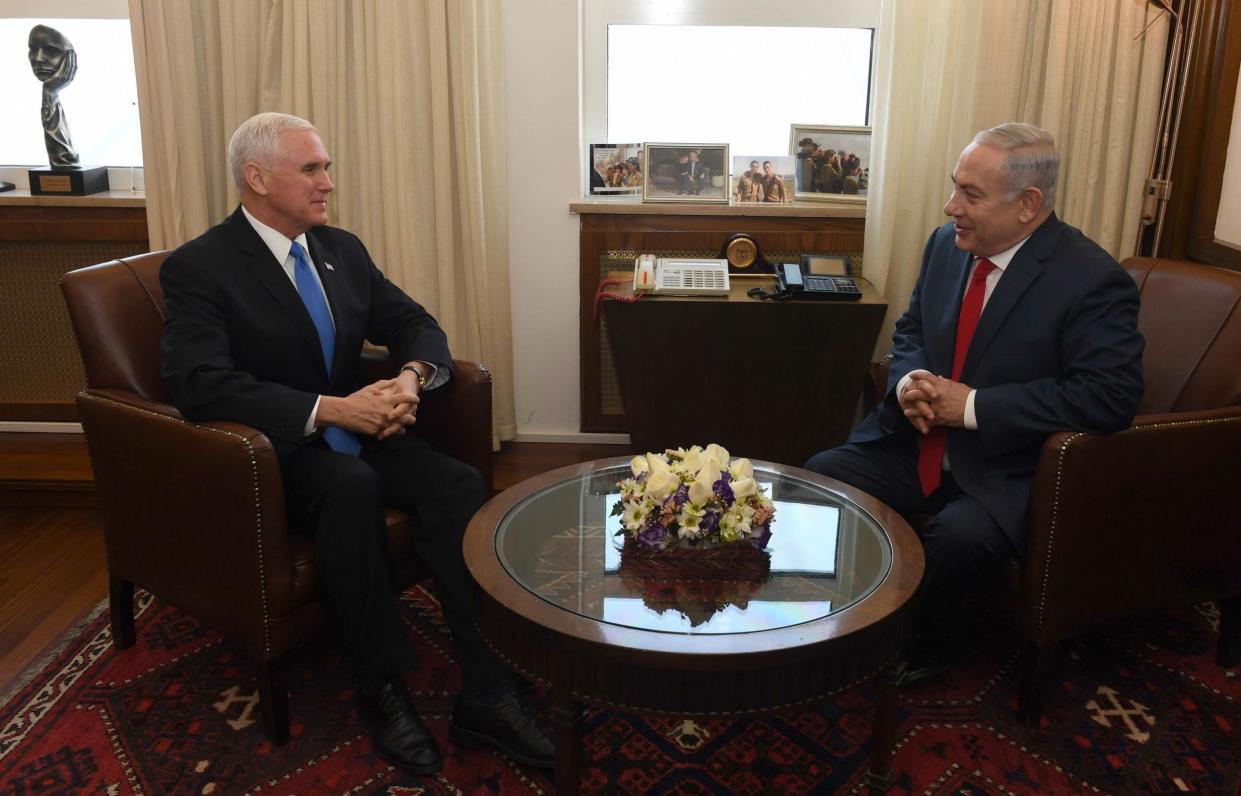Mike Pence's Israel visit shows that Donald Trump is prepared to weather criticism over Jerusalem decision

Caution had always been the watchword for much of the world when it came to the Israel-Palestinian conflict, working on a mutual agreement on the need for dialogue - with the thorny issue of the status of Jerusalem.
The US broke with that tradition, and decades of foreign policy, when President Donald Trump announced last year that Jerusalem would be designated Israel's capital and that the US Embassy would be moved from Tel Aviv. That announcement led to protests across the Middle East and days of condemnation of much of the international community, but the Trump administration has stuck to its guns.
Vice President Mile Pence's Israel visit had been postponed back in December because of the impending US Congress vote on sweeping tax reform measures, although it did not hurt that it would allow some breathing room to calm tensions over the Jerusalem decision which Mr Pence had been one of the driving forces behind. The fact that Mr Pence announced that the embassy would be moved to Jerusalem by the end of 2019, earlier than the three or four-year timetable roughly sketched out by US Secretary of State Rex Tillerson in December has merely re-opened wounds.
The Palestinian leadership has seethed about the decision for weeks, declining meetings with Mr Pence - an evangelical Christian and a staunch supporter of Israel - with President Mahmoud Abbas going as far as actually heading to Brussels during Mr Pence's trip and meeting EU officials. There he received assurances that the EU backed a two-state solution with Jerusalem as the shared capital for the two states.
This is where the problems lie. Mr Trump's decision entrenched a split where there had at least been paper over the cracks in previous years by common consensus from Western powers. While the US had been deferring a decision on the status of Jerusalem for years it at least allowed room for negotiations to take place. There appears little prospect of that happening at the moment, with the Palestinians seeking solace from the EU and regional partners, and the US happy to take the thanks of Israel.
The pictures and words from both Mr Pence and Israeli Prime Minister Benjamin Netanyahu, will have done little to help the mood of Palestinians, although both Mr Pence and Mr Netanyahu will have gained political capital from the warmth of their meeting.
As for the shifting up of the embassy move, there is an argument that it is based on the principle that a new embassy would have taken up to a decade to put in place - beyond even the timeframe of a second term for Mr Trump.
The current plan, to “refit” a current US facility, reduces the complexities of having to find a suitable site, tackle security issues and means the administration can present a win to the Israel supporters among the US electorate before the next election.
Despite Mr Pence calling on the Palestinians to return to the negotiating table, the move, plus the support of Israel, is seemingly more important to Mr Trump and his team than presenting a united international front.

 Yahoo News
Yahoo News 
